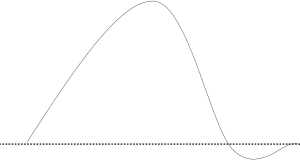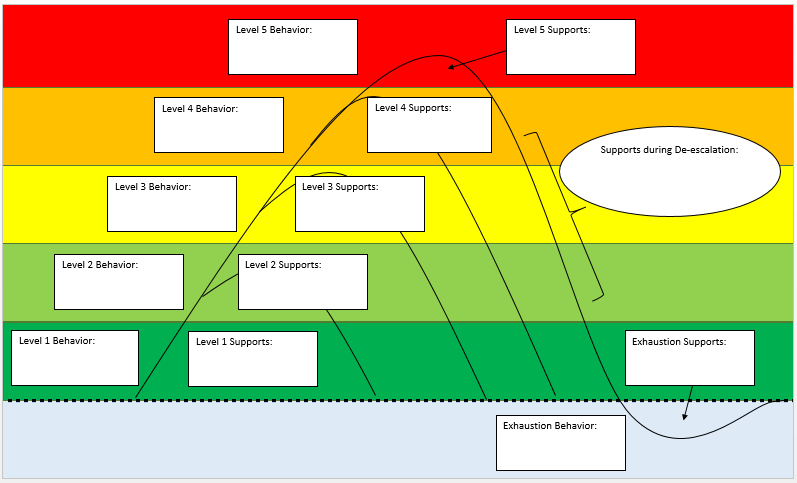 Let’s do a quick review of the escalation cycle. The student begins at their baseline and everything is going well. The student is able to focus on work and perform at their maximum capacity. They are alert and responsive. But then they experience a trigger, and the perception that they can handle their given state changes. As their mind goes into survival mode their behavior becomes progressively more intense. The escalation reaches its height, and then the student’s behavior slowly becomes less and less intense. Before they are able to return to baseline they often encounter what is referred to as an exhaustion phase, in which the individual is much more calm and quiet. This recovery time can last anywhere from a few minutes to a few hours. When finished the student returns back to baseline. This is the cycle that most de-escalation courses have adopted in some variation and it is pretty simple.
Let’s do a quick review of the escalation cycle. The student begins at their baseline and everything is going well. The student is able to focus on work and perform at their maximum capacity. They are alert and responsive. But then they experience a trigger, and the perception that they can handle their given state changes. As their mind goes into survival mode their behavior becomes progressively more intense. The escalation reaches its height, and then the student’s behavior slowly becomes less and less intense. Before they are able to return to baseline they often encounter what is referred to as an exhaustion phase, in which the individual is much more calm and quiet. This recovery time can last anywhere from a few minutes to a few hours. When finished the student returns back to baseline. This is the cycle that most de-escalation courses have adopted in some variation and it is pretty simple.
What is not simple is knowing how it specifically applies to the student that you work with. Some students escalate very quickly, some have triggers that are unobservable, and some take a long time to get back down to baseline. This variation makes it difficult to effectively plan out how staff can appropriately support during different points of an escalation. Even if planning is done well, it can still be a struggle to share it out to everyone who needs to be in the loop. All of this can end up interfering with the school’s ability to properly support a child in a tine of crisis.
I personally made the tool below to help address this issue and I have seen great success with it. It breaks behaviors down into 5 different levels plus the exhaustion phase. Level 1 is when a student is at their baseline, Level 5 is when the behavior is at its worst, and the levels in between represent the progression of behavior. Each level has a set up strategies assigned so to optimize the chances of curbing the escalation right where it is at. But if the escalation reaches its peak, there is a plan in place for that.
I will be referencing this tool in upcoming days and providing suggestions for supports at different levels. Working through this document and then sharing it out to the entire team, including the family, can help equip everyone in being effective, supportive, and consistent in a time of crisis. If you would like your own copy, email me at patrickmulick@gmail.com and I can get it right to you.
Happy Cycling!







Hello,I check your blogs named “Day 5 of ASD De-escalation Tips: Know the Cycle – Patrick Mulick” like every week.Your humoristic style is witty, keep up the good work! And you can look our website about love spells.